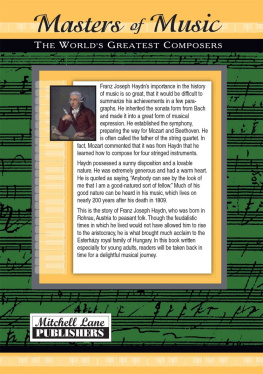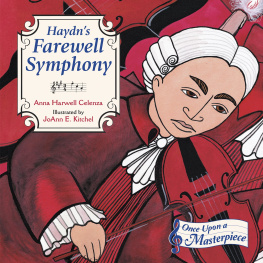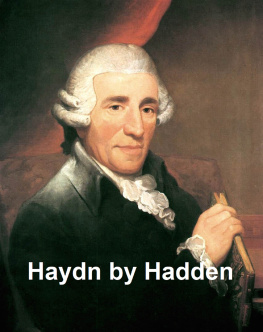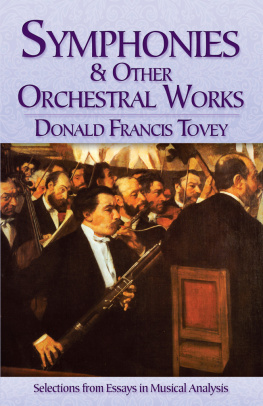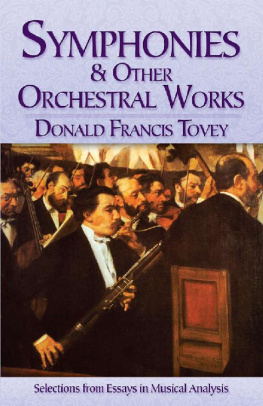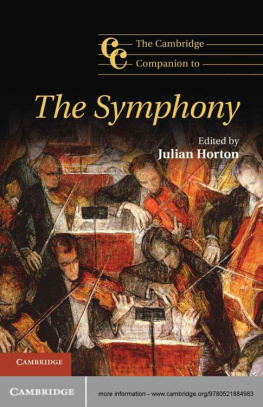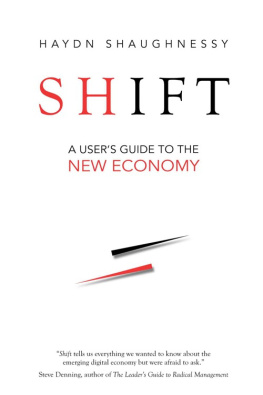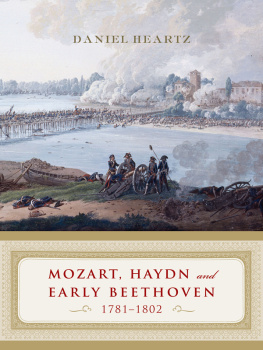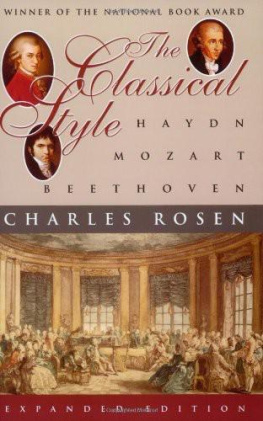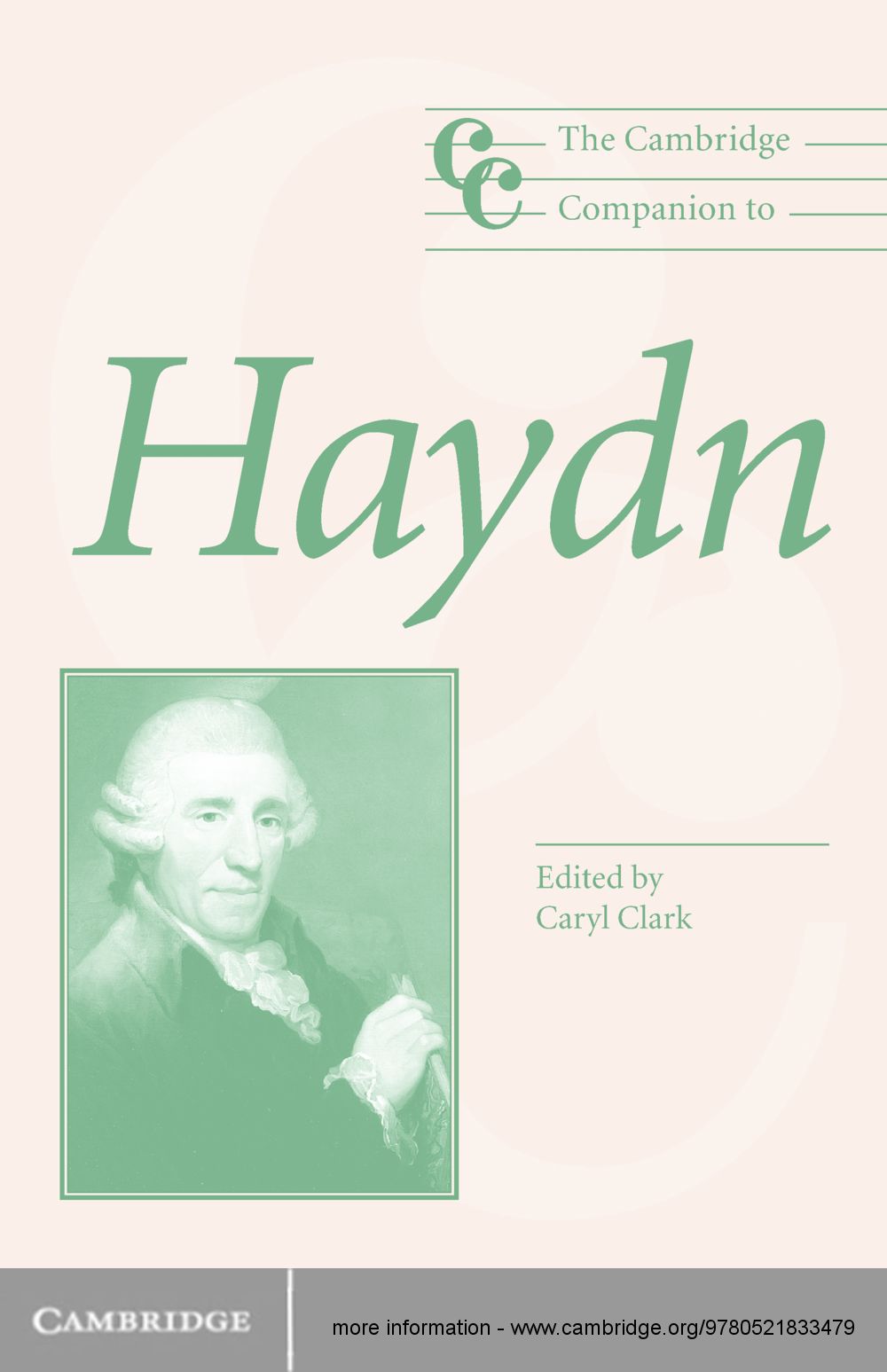Scott Burnham is Professor of Music and Chair of the Music Department at Princeton University. He is the author of Beethoven Hero (1995), translator of A. B. Marx, Musical Form in the Age of Beethoven (1997), and co-editor, with Michael P. Steinberg, of Beethoven and His World (2000).
Performer-scholar Tom Beghin is Associate Professor at the Faculty of Music, McGill University, Montreal. His discography, on the Eufoda, Claves, Klara, and Bridge labels, features music by Beethoven, Haydn, Moscheles, C. P. E. Bach, Zelter, and Mendelssohn, all performed on historical keyboards, and he is currently recording the complete Haydn works for solo keyboard. Essays on Moscheles and Haydn appear in Haydn and His World (Princeton, 1997) and 19th Century Music .
Caryl Clark is Associate Professor at the Faculty of Music, University of Toronto, and is cross-appointed to the Department of Humanities, University of Toronto at Scarborough. Her publications on Haydns operas appear in The New Grove Dictionary of Opera, Studies in Music, Current Musicology, The Haydn Yearbook , and Early Music . She is co-editor of three special opera issues of The University of Toronto Quarterly : Voices of Opera (1998); Opera and Interdisciplinarity (2003); and Opera and Interdisciplinarity II (2005).
James Dack is a Senior Lecturer in Music at Royal Holloway, University of London. He has been involved in the editing of Haydns early masses in the Joseph Haydn Werke , issued by the Joseph Haydn-Institut, Cologne.
Michelle Fillion is Associate Professor in the School of Music, University of Victoria, in British Columbia. Her forthcoming book, E. M. Forster from Beethoven to Britten: Musical Resonance in a Literary Life , will be published by the University of Illinois Press.
James Garratt is Lecturer in Music and University Organist at the University of Manchester. His main research interests are in nineteenth-century German music, thought, and culture. His publications include Palestrina and the German Romantic Imagination: Interpreting Historicism in Nineteenth-Century Music (2002).
Rebecca Green is an independent scholar whose research interests include the operas of Joseph Haydn. She teaches at the University of Maine at Farmington.
Matthew Head is a Senior Lecturer in Music at the University of Southampton. His research explores music and culture in the German Enlightenment. His monograph, Orientalism, Masquerade and Mozarts Turkish Music , was published by the Royal Musical Society in 2000.
Mary Hunter is Professor of Music at Bowdoin College in Brunswick Maine. She is the author of The Culture of Opera Buffa in Mozarts Vienna: the Poetics of Entertainment (1999) and the co-editor of Opera Buffa in Mozarts Vienna (1997). She is currently working on ideas about performance at the turn of the nineteenth century.
David Wyn Jones is Reader in Music at Cardiff University. His published work has focused on Haydn, Beethoven, and aspects of music dissemination in the eighteenth century. He is the editor of the Oxford Composer Companions : Haydn (2002).
Katalin Komls musicologist and fortepiano recitalist, is Professor of Music Theory at the Liszt Academy of Music, Budapest. Since receiving her Ph.D. in musicology from Cornell University, she has written extensively on the history of eighteenth-century keyboard instruments and styles, including Fortepianos and Their Music (1995).
Lawrence Kramer is Professor of English and Music at Fordham University and co-editor of 19th Century Music . His many books include Classical Music and Postmodern Knowledge (1995), Franz Schubert: Sexuality, Subjectivity, Song (1998), Musical Meaning: Toward a Critical History (2002), and Opera and Modern Culture: Wagner and Strauss (2004).
Melanie Lowe is Assistant Professor of Musicology at Vanderbilt University and holds a secondary appointment in Vanderbilts program in American and Southern Studies. She has published articles on the music of Joseph Haydn, classical music in American media, and early adolescent girls and teen pop. She is currently completing a book on pleasure and meaning in the late eighteenth-century symphony.


